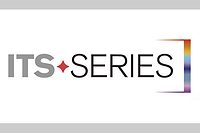New Opportunities Emerge in International Markets

Bed Liners to Oil Fields
When ArmorThane started in 1989, they supplied auto dealers and repair companies to spray truck bed liners. North America was the prime target market. The bed liner business expanded into polyurethane and polyurea products for other industries who needed quick-dry, ultra-strong protective coatings. A variety of proprietary products are now sold throughout the world, including STS, ArmorShield, ArmorFloor, ArmorFoam and ArmorBlast brands.
“With minor product adjustments and the outfitting of trailers with generators, air compressors and other spray equipment, we expanded opportunities from stationary workshops to mobile coating units so dealers could travel to the job,” said Garry Froese, founder and CEO. “Now our coatings can be used for numerous projects such as secondary containment berms in Texas oil fields, pipelines in Montana, commercial water fountains in New Jersey, and concrete deck sealing in Missouri.
While ArmorThane still expands within the United States the weaker economy makes it difficult to meet business objectives. In fact, a recent study of small to mid-size businesses found that half of those surveyed were not expecting to meet their sales goals.
Froese sites a catch-22 since his company offers people a chance to start a new business, but financing, even with a small investment, has become difficult to obtain. Current dealers also fight to grow as their end user market softens.
In contrast to what’s happening with the U.S. economy, many other countries are improving. The weaker dollar has also spurred interest in doing more business with American companies.
The International Plunge
The first product outside of North America was spray-on polyurethane. Thailand, Argentina, Malta and the U.K. wanted to coat truck bed liners and other transport equipment. Since then, products export to Asia, the Middle East, Africa and many parts of Europe.
ArmorThane pursues two global areas of interest. One is the growth of trucks and the desire for truck bed liners. The other is a focus on environmental protection as these economies escalate and trigger a demand for many of the same safeguards required in the United States.
Countries recognize American quality and look for experience in solving problems. Current projects include a broad range of protective coating applications for pipeline repair, blast mitigation, bridge deck surfacing, roofing, warehouse flooring and grain silos.
“Organizations have turned to us for some unique solutions involving caustic sealing and abrasion problems,” said Froese. “Our products have been used for strengthening mining equipment, coating concrete sewer manhole entrances that weaken with gases, and designing secondary containment systems for oil and gas well sites and other environmental issues.
Lessons Learned
ArmorThane focuses sales efforts on trade shows that attract worldwide interest. Those events prompt an invite to their country, so much travel is required. The internet is another good source of contact.
Whereas most of the North American dealers are small independents, the international focus has been to establish a master distributor who takes possession of large quantities and manages the region for smaller customers. Froese also partners with contractors that work for a large company.
Communication is often a fear of companies going global. In reality, English is the international business language. Representatives understand what is being said but may hesitate to do much discussion. One lesson learned is that other countries can be much slower in making decisions, so patience is a virtue.
“To avoid problems and establish relationships abroad, the key is to not come across as a ‘typical American’. Lose the arrogance. Prepare to get submerged in their cultures. Research and understand their customs. I’ve had to eat and drink some interesting things, but it works,” said Froese. “Also, after the sale and training, you can’t stop communicating or the customer feels separated and stops buying.”
Import duties make these expensive products even more costly to the end user. But, ArmorThane only has about five competitors, and none reside in the countries being targeted. The devalued dollar helps to offset those added costs.
Currently ArmorThane does all business in U.S. dollars and no financing, so fluctuation in exchange rates is not a problem. This means that the customer takes possession before leaving the warehouse and they are responsible for shipping, although ArmorThane often coordinates that part for them. If this policy changes, there are a number of government and private organizations that assist with insurance and risk mitigation.
Shipping time is an issue that customers learn to accept. Most products go ocean freight and take three to six weeks from point to point. Air freight is available, but expensive for heavy drums and equipment. These chemicals are non-hazardous so do not require special handling. The industry uses universal labeling and symbols that may not be available for other products.
“We have found that small businesses can make headway by exporting to other countries, while large corporations often struggle with government politics,” said Froese. “It still has its challenges, but international sales are a vital step in our strategic plan.”
For more information, visit www.armorthane.com.
Looking for a reprint of this article?
From high-res PDFs to custom plaques, order your copy today!






